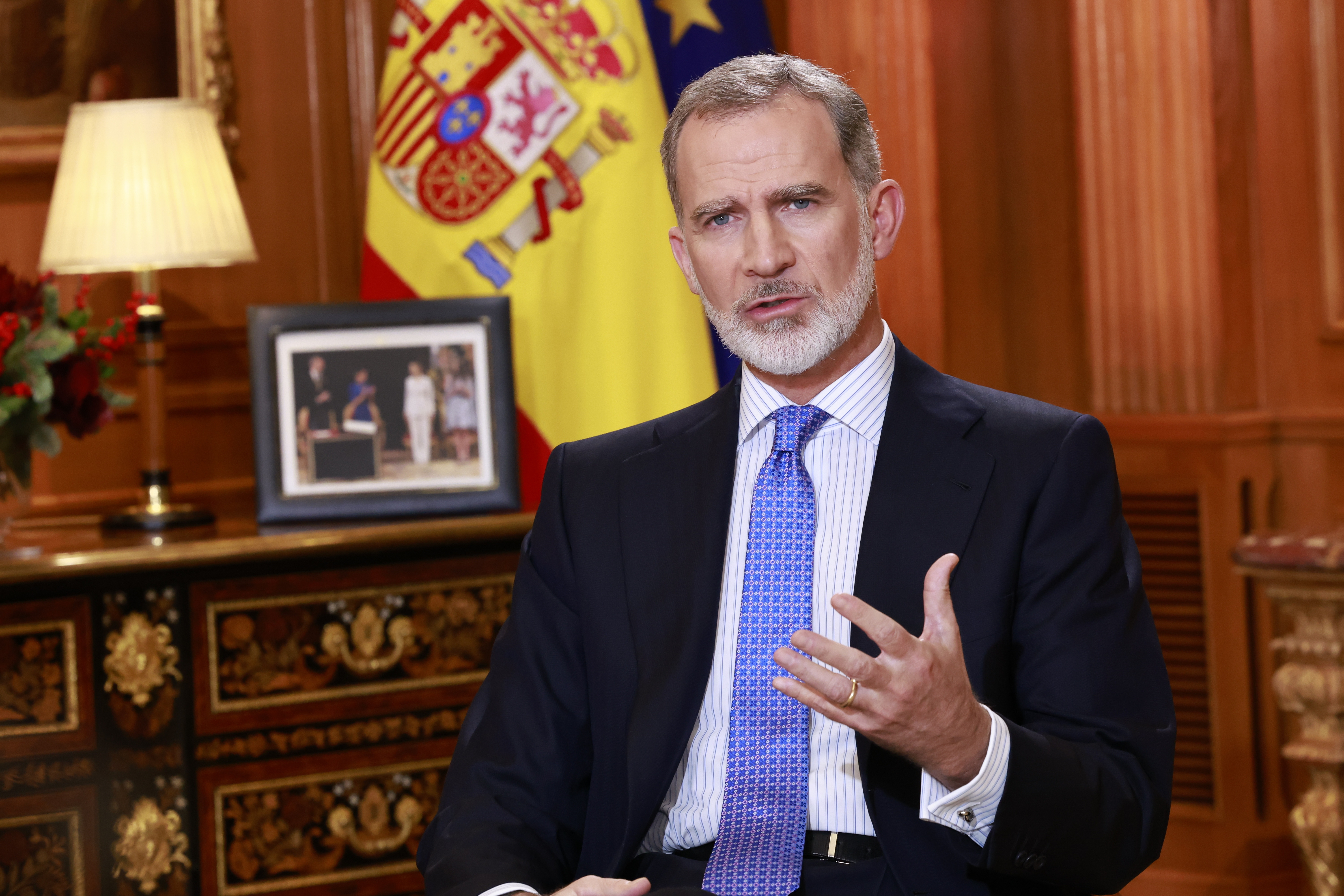"Social harmony", "unity", "responsibility" and "loyalty" to the Constitution and, consequently, to Spain. These are the four key elements of the speech delivered by the Spanish king, Felipe VI, this Christmas Eve, which he dedicated to a tooth and nail defence of Spain's magna carta; a speech that, unlike those of other years, concentrated completely on internal affairs, due to the agreements made by the now-reinvested prime minister Pedro Sánchez with the Catalan pro-independence parties, and the increase in tension between the People's Party (PP) and Sánchez's Socialists (PSOE). The Spanish king made no mention of the war in Ukraine this year, nor of the conflict in Gaza between Israel and Hamas. Only at the beginning of his speech did he make a brief reference to the "economic difficulties" that affect "employment, health and education" as well as the concern caused by male violence and the cost of housing. Throughout the rest of his address, he referred exclusively to the current political context within the Spanish state.
At no point did he utter the word 'amnesty' or refer specifically to the Spanish judicial power, but his entire speech revolved around the contention in the relationship between the PP and the PSOE, and between the Spanish government and the judiciary; due, principally, to the dependence of the governability of the Spanish state on the Catalan pro-independence parties. "Each institution, starting with the king, must situate itself in the place that constitutionally corresponds to it, exercise the functions attributed to it and comply with the obligations and duties that the Constitution indicates", he said after Sánchez and Feijóo reached the point, two days ago, of pointing to the European Commission as a mediator for their two parties over a reform of the judicial governance body, the General Council for the Judiciary (CGPJ); and even Carles Puigdemont commented that Felipe VI had failed to exercise his duties as a referee.
And, after Together for Catalonia (Junts) MP Míriam Nogueras spoke of "obscure characters" and demanded that those judges who had persecuted and punished pro-independence activists should face trial, the Spanish king counterattacked. This Sunday he recalled the obligation to "respect the rest of the institutions in the exercise of their own powers", as well as "contribute mutually to their strengthening and prestige".
A year ago, the monarch warned in his Christmas Eve address of the "risks" of "erosion" of Spanish institutions, warning that "division makes democracy more fragile". This year he has spoken again about "division", expressing the view that the achievement of the Constitution was to end this problem 45 years ago. This time, though, he denounced the constant lack of agreement between the two main political forces in the state, while focusing his attacks on the government led by Pedro Sánchez, due to the pacts with Junts and the Catalan Republican Left (ERC) that have allowed him to form a third Spanish government.
This Sunday, from the Zarzuela royal palace, he sent a message of concern for the level of respect for the Spanish Constitution. He also made a call for "unity", the same term that he directed at Sánchez at the end of November on the occasion of the opening of the current legislature. "Without respect for the Constitution, there is no democracy or social harmony possible; there are no freedoms, but imposition; there is no law, but arbitrariness; outside the Constitution there is no Spain in peace and liberty", asserted the monarch in one of the most forceful statements of his speech.

